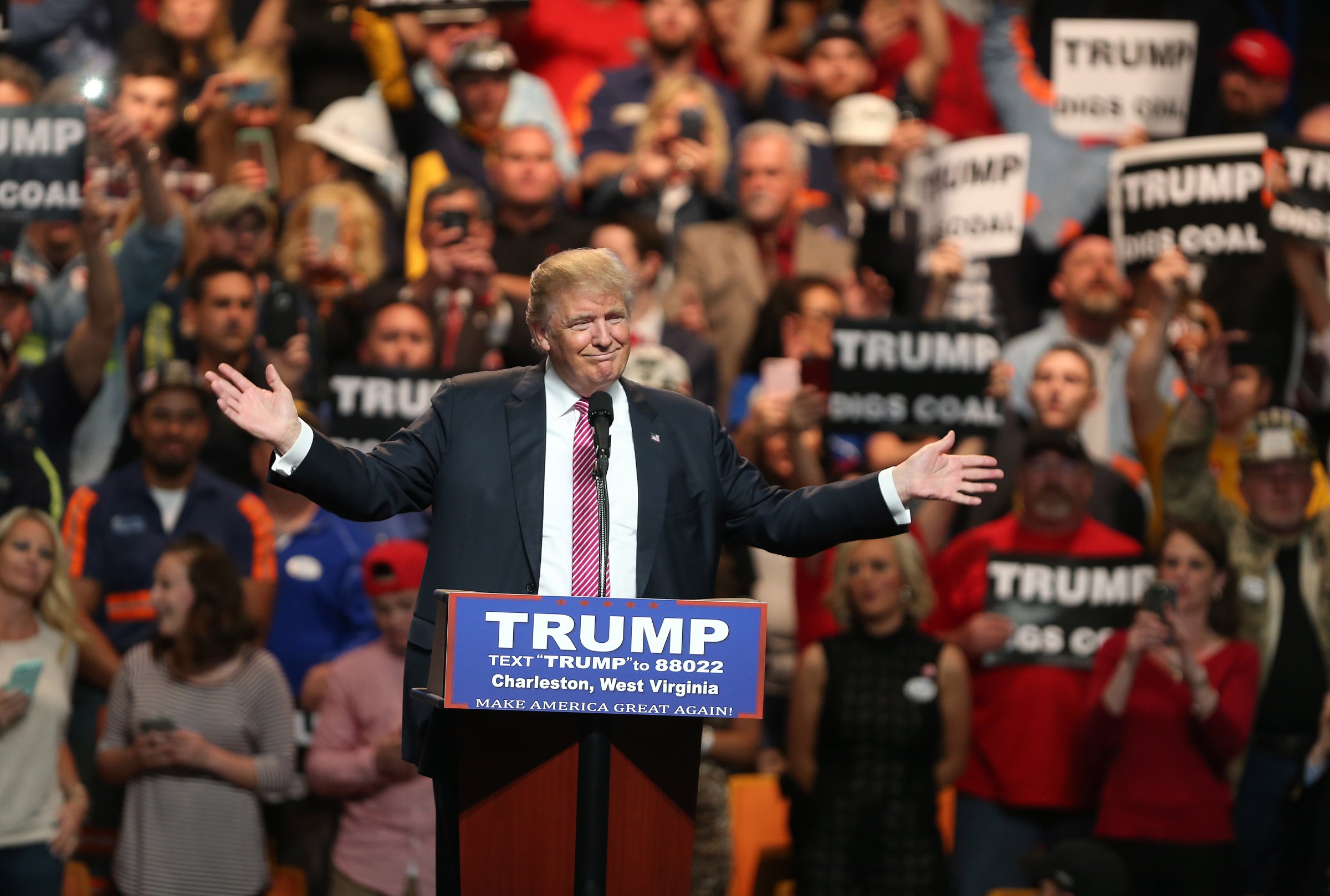
“@RealDonaldTrump will be presumptive @GOP nominee, we all need to unite and focus on defeating @HillaryClinton,” Republican National Committee Chairman Reince Priebus tweeted after Trump’s resounding primary victory in Indiana.
The first part of the tweet is now undebatable, but the latter remains a major lift. Many current and former Republican leaders—including House Speaker Paul Ryan—have declined to publicly endorse their party’s presumptive nominee, despite Trump’s obvious appeal to working-class Americans. One former Republican senator even called the real-estate mogul a “sociopath.”
How can Trump rally a hesitant Republican establishment around his insurgent candidacy?
The answer is substance, not style. The presumptive Republican nominee must prove to conservatives that he’s committed to their brand of reform—free-market solutions to the problem of Big Government. Doing so requires a firm stance on specific policy proposals near and dear to the Republican Party.
The $19 trillion national debt is a good starting point. “Republicans believe that reducing the multi-trillion debt is imperative for the well-being of this country,” the Party’s platform states. Yet Trump has balked at serious entitlement reform and other forms of debt alleviation, while simultaneously proclaiming himself “the king of debt” and admitting “debt is tricky and it’ dangerous.” A clarification of his position would help reassure Republicans wary of Trump’s commitment to reducing U.S. debt.
The same goes for the minimum-wage debate. Trump has previously acknowledged the job-killing repercussions of minimum wage hikes, but recently changed course and appeared to embrace the concept of a higher starter wage. This not only bucked Republican orthodoxy—Ryan and others have warned higher labor costs could lead to fewer jobs—but also basic economics: The nonpartisan Congressional Budget Office analyzed a $10.10 minimum wage and concluded it would cost the country a half-million jobs. For political and policy purposes, Trump would be wise to highlight this unintended consequence.
He could even go further and propose more constructive legislative reforms. For example, expanding the Earned Income Tax Credit (EITC)—a proposal floated by reform-minded Republicans like Ryan—would supplement the incomes of the working poor without hiking labor costs and discouraging employers from providing jobs for the least skilled in society. “The EITC is a far smarter way of pulling people into the workforce who are not there right now rather than raising the minimum wage,” Ryan has said.
He has a point: In 2013 alone, tax credits lifted 6.2 million people out of poverty, including 3.3 million children—without putting jobs on the chopping block. The EITC enables Trump to appeal to Ryan—who remains open to endorsing him—and other conservatives, while tackling income inequality head-on.
The Employee Rights Act (ERA) presents a similar opportunity. Introduced to update American labor law—which has remained relatively unchanged since the 1940s—the ERA would democratize the workplace by mandating secret ballot union elections and guaranteeing employee privacy during union organizing campaigns. The bill would also require labor organizers to obtain opt-in permission from their members before spending dues money on politics.
It’s the kind of populist rallying cry right up Trump’s alley. The ERA is now co-sponsored by more than 140 members of Congress and supported by 80% of Americans, including union households. What better way to woo Republicans—and the majority of Americans—than embracing such a widely popular initiative?
Now is the time for Trump to get serious about policy. Style has catapulted Trump in Republican primaries, but substance will make him a real threat to Hillary Clinton.
More Must-Reads from TIME
- Cybersecurity Experts Are Sounding the Alarm on DOGE
- Meet the 2025 Women of the Year
- The Harsh Truth About Disability Inclusion
- Why Do More Young Adults Have Cancer?
- Colman Domingo Leads With Radical Love
- How to Get Better at Doing Things Alone
- Michelle Zauner Stares Down the Darkness
Contact us at letters@time.com